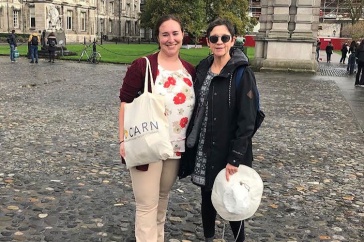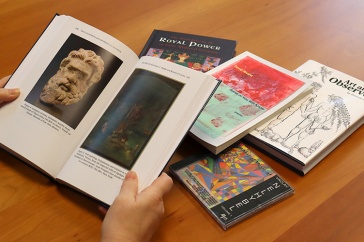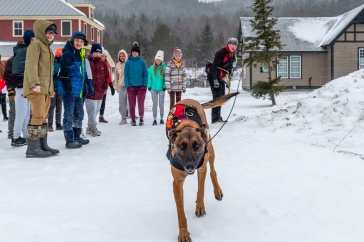
A video about how children learn to collaborate, by Andrew Coppens, assistant professor of education in learning sciences at UNH, is featured in the 2020 STEM for All Video Showcase competition hosted by the National Science Foundation. Coppens is co-presenter with Barbara Rogoff, Rebeca Mejía-Arauz, Angélica López-Fraire and Lucía Alcalá.
Their 3-minute research video, “Learning to Collaborate,” shows that cultural differences in how parents include toddlers in everyday work may support children’s interest and skill in collaboration – a skill that is valuable for learning. The researchers submitted the video as part of NSF’s annual competition showcasing innovative ways to improve learning of science, technology, engineering and mathematics.
"Mexican-heritage mothers often see young children’s eagerness to get involved as an indication that they want to help, and this assumption is the foundation for parenting that supports learning to collaborate."
The video, based on interviews Coppens conducted with California mothers, highlights the ways that many U.S. Mexican-heritage families include even the youngest children in family work. As Mexican-heritage children reach middle childhood, they are often more likely to pitch in to help voluntarily than middle-class European American children, whose families generally try to discourage toddlers’ involvement in family work.
“Mexican-heritage mothers often see young children’s eagerness to get involved as an indication that they want to help, and this assumption is the foundation for parenting that supports learning to collaborate,” Coppens points out. The Mexican-heritage families’ encouragement of collaboration in early childhood could lay the groundwork for successful collaboration in classrooms and informal settings, and aid national efforts to broaden children’s participation in science, according to the researchers.
Their video is available for voting through May 12 at NSF’s competition website. Viewers are invited to vote for their favorite video and join the online discussion of the videos.
Similar videos from these researchers have taken top awards in the previous four years. The videos, about skilled collaboration, helpfulness and keen observation, remain available for viewing at NSF’s Stem for All Multiplex.
Now in its sixth year, the NSF showcase features over 170 innovative projects aimed at improving STEM learning and teaching.


















































